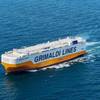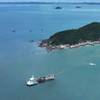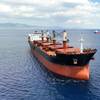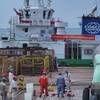ICCL and CI Launch Project to Protect Sensitive Marine Areas
"Healthy oceans are critical for the planet's health and the cruise industry is to be commended for its efforts to implement the recommendations and its support of this ambitious mapping exercise to protect marine biodiversity," said Dr. Sylvia Earle, chair of the science panel and executive director of CI's Global Marine Division. "The science panel understands individual cruise ships and transportation routes will impact how each recommendation can be carried out. Implementation of this mapping exercise will be an important first step as the industry begins the process of reviewing and integrating the science panel's recommendations into their operations. I am encouraged by the cruise industry's proactive commitment to healthy oceans." The mapping initiative was one of 11 recommendations delivered to the cruise industry by the seven-member independent science panel. The recommendations looked at a variety of issues including:
* Treatment and discharge of blackwater (ie, wastewater generated from toilets and medical sinks) and graywater (ie, wastewater from sinks, showers, laundries and kitchens); * Continued installation and monitoring of advanced wastewater purification systems (AWPS), as well as independent evaluation of AWPS through the U.S. Environmental Protection Agency's Environmental Technology Verification Program; * Protocols for disposal of sewage bio-residues (sludge); * Improving source control and continued use of biodegradable soaps, shampoos, detergents and cleaning agents; * Improving passenger education about environmental stewardship by providing pre-boarding and onboard literature about waste management practices.
The full list of recommendations, as well as other supporting material developed by the science panel can be found online at http://www.celb.org and http://www.iccl.org. "The industry is grateful that these scientists have volunteered their time to aid the industry in identifying practices that will lead to a cleaner marine environment. Our partnership with Conservation International on the wastewater mapping exercise is an example of our continuing commitment to the world's oceans," said Michael Crye, ICCL president. "The ICCL, as well as each of its member lines, will take into consideration all of the independent science panel's recommendations and determine how to best implement them. From our initial review, a majority of the recommendations will be implemented immediately."
The world's oceans face a variety of environmental impacts from land-based wastewater discharges, storm water runoff and marine vessels. It is recognized that wastewater discharges from these other sources far exceeds that of cruise ships, and the science panel supports the current efforts of the cruise industry to minimize its own impacts on the marine environment. "We recognize the cruise industry's continued leadership to protect the world's oceans while serving their passengers through their commitment to the science panel recommendations," said Glenn Prickett, executive director of Conservation International's Center for Environmental Leadership in Business. "This global mapping initiative demonstrates how the conservation community can work with the tourism industry to develop solutions that contribute to conservation." The volunteer, independent science panel, comprised of leading marine experts, was convened in March 2004 by the Ocean Conservation and Tourism Alliance -- a partnership between CI and the ICCL to help protect biodiversity in top cruise destinations -- to evaluate the management practices for cruise ship wastewater discharges and to recommend guidelines for good and improved practices for the industry. The seven-member panel gathered, reviewed and synthesized a wide-range of available scientific data. The panel supplemented this research with an intensive series of interviews, stakeholder dialogues and discharge mapping exercises to identify and better understand the cruise industry's current waste management practices.






